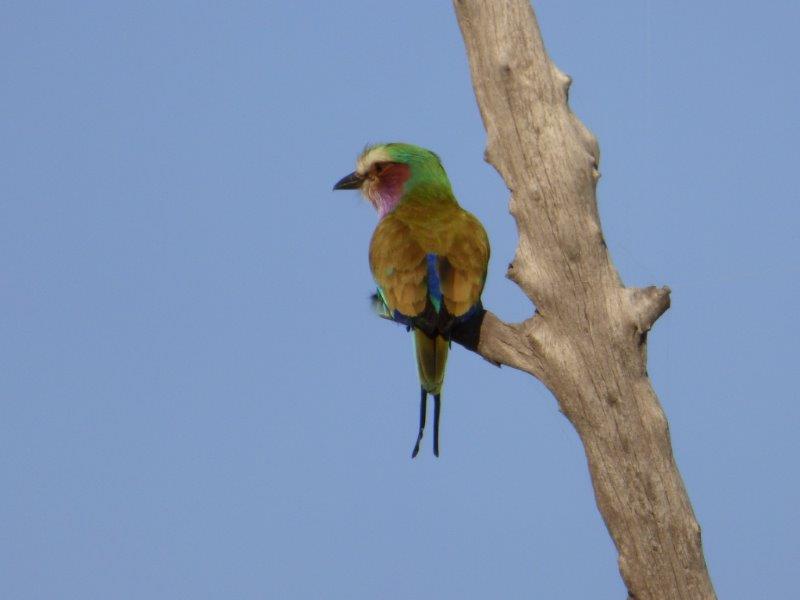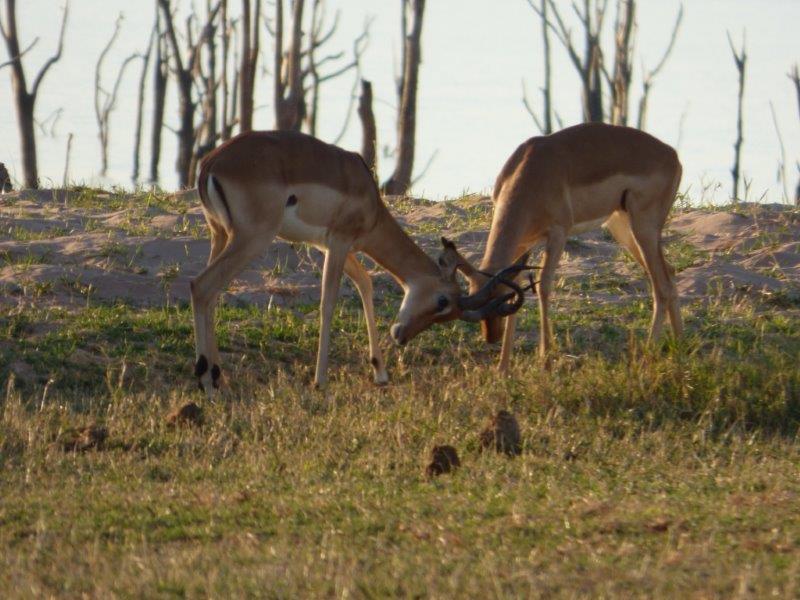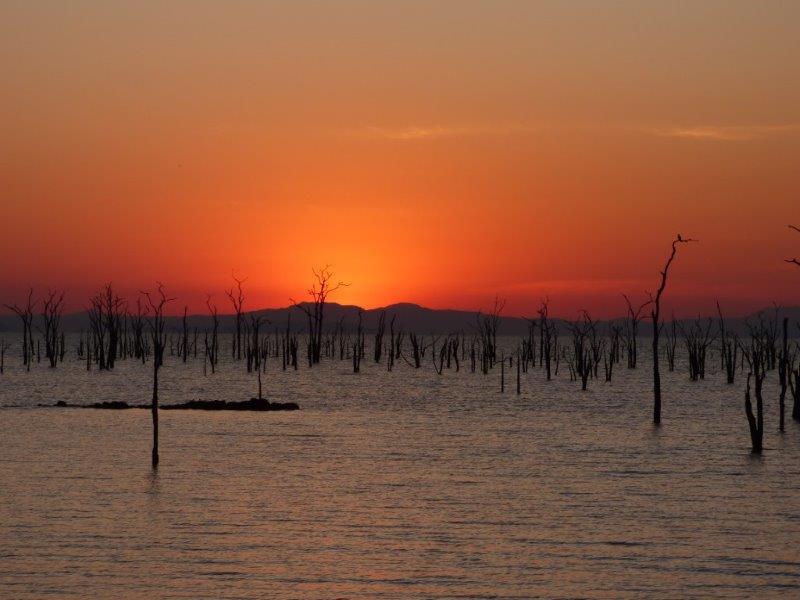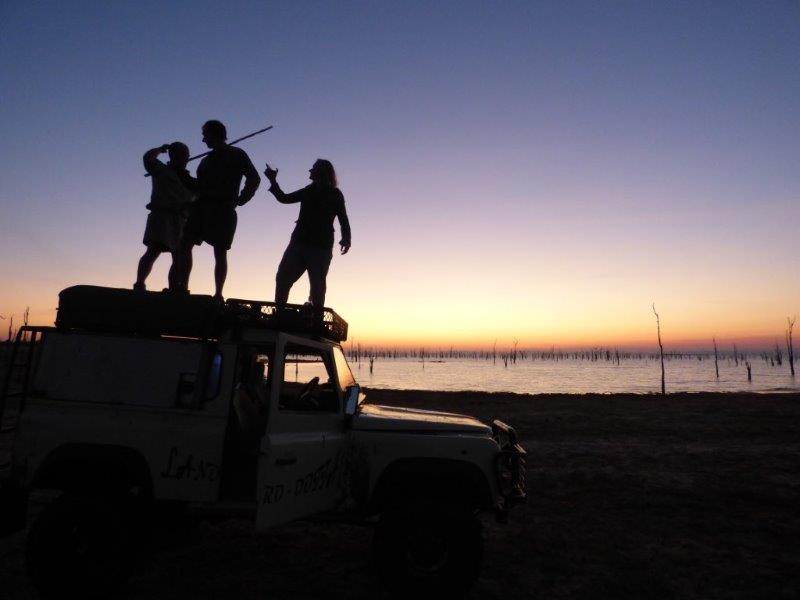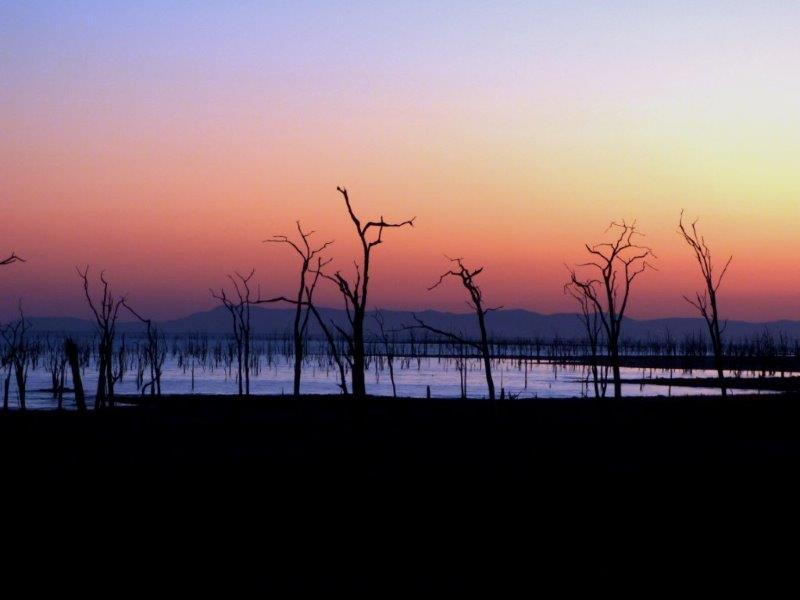R & R at Lake Kariba’s Rhino Safari Camp
By Jamie Joseph
Assignment 1, blog 3 in the mission: Solving poverty saves wildlife.
Read blog 1: Now this is what I call Africa
Read blog 2: Nine lions close in on Matusadona camp site
After Saturday’s incident with the nine Matusadona lions and the medics unable to get a drip in me, it was decided I would spend two days rehydrating and recovering at Tashinga Camp’s neighbours; Rhino Safari Camp. There I would be under the watchful eye of gracious host Levi Young who would make sure I drank plenty of water and ate all my vegetables!
Well, being sick never felt so good.
I usually have a bounce in my step, and am naturally alert, but late afternoon on Monday I arrived at the lodge feeling rather dazed, and was not really taking in my surroundings. I was escorted along a sandy pathway with thick bush on either side until we reached chalet number six, built with Mopani hardwood and thatch. Seven steps up, passing an open air bathroom to my left, I arrived at a little slice of utopia. I’d been sleeping in a tent for about a week, and so the bed in itself was a creature comfort, but to the left of the bed there was a lounger and coffee table, and to the right a desk where I promptly placed my lap top and notebook. And because Lake Kariba never gets cold, technically we’re now in the tail end of winter, windows are replaced with fresh flowing air.
Just twenty metres directly in front of my chalet a dozen elephants grazed on the grass, especially rich in nutrients because the lake is extremely low right now, exposing the valley floor, a smorgasbord for the local animals. I lay down on the bed and watched as the elephants kicked at the grass roots, and then wrapped their trunks around the grassy blades, pulling chunks into their mouths, all the while those white skinny neck egret birds darted between their legs, snapping up insects as they were swiftly uplifted from the ground. As the sun streaked pink, orange and red across a hazy blue sky, my body clock seemed to melt into my surroundings, and I could feel nature’s life force seeping into my cells. I was healing.
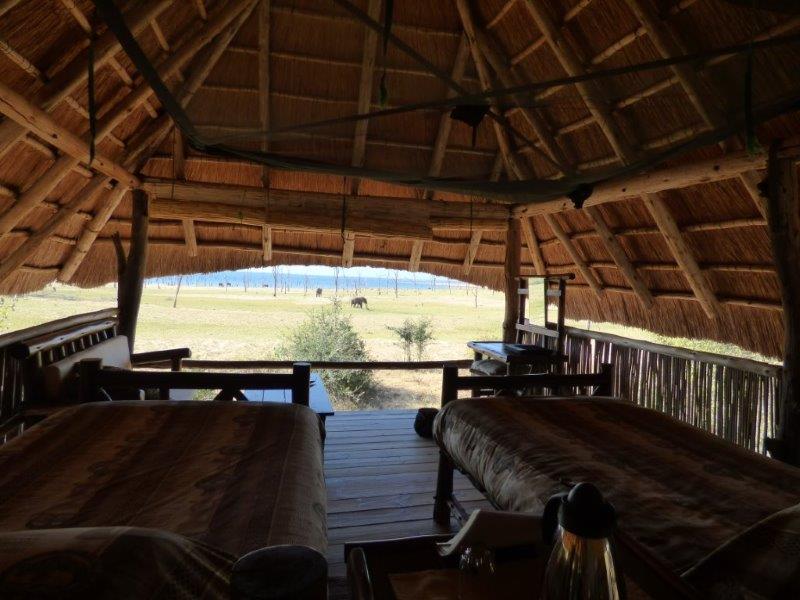
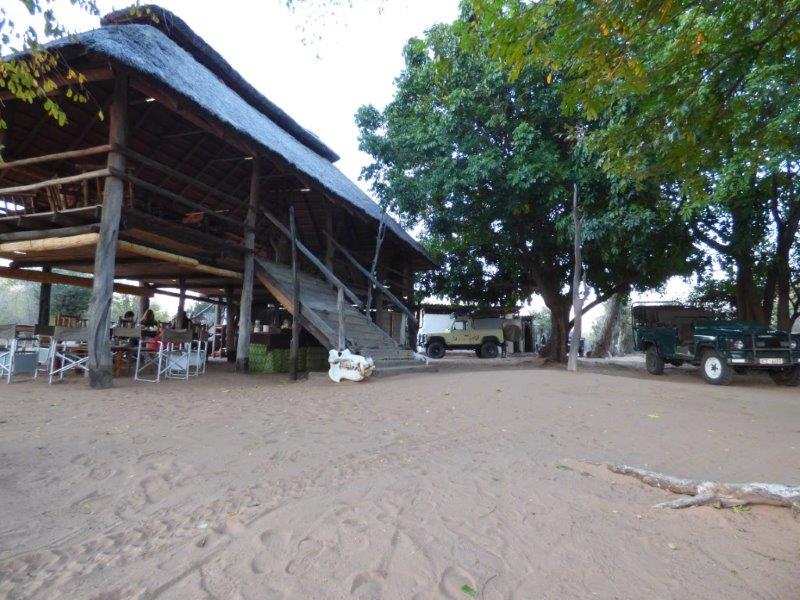


An hour later I was standing under a steaming hot shower which works off a fireball system, lit at 8am when guests are usually out on a game drive or boat cruise. Above my head a glittering haul of stars engulfed the night sky, and all around me I could hear the eles munching in the bushes.
After a feast of veggies for dinner and bread and butter pudding, I awoke at the break of dawn after the most peaceful sleep I have had as far as memory can recall. The lodge has been built in harmony with its surroundings, with solar panels generating power and natural materials used at every opportunity. As I walked through to breakfast I stepped in the footprints of elephants, hippos and hyenas that had all used the same pathway during the night while we were sleeping.
I lazed the day away, drinking copious amounts of water, and chatting with Steven Chinoi as I dipped my feet into the splash pool adjacent to the fire pit. Steve is the pro guide that has been based full time at Rhino Lodge for the past four years. I always enjoy spending time with Zimbabwean guides because their bush knowledge really is in a class of their own. Whereas in many African countries it takes a matter of weeks to get a guiding license, here in Zim the guides have to earn their stripes with a minimum two year apprenticeship.
Back in the nineties when Steve was 23 living in a rural community he was given the opportunity through a NGO to go on a guided canoe trip. It was this experience that sparked his interest in wildlife guiding as a career, and the rest, as they say, is history. We discussed my current mission ‘Solving poverty saves wildlife’ and he agreed that bee keeping could be a viable option as an alternative income for rural poachers living in the neighbouring villages that border on the Matusadona National Park. Nigel Kuhn, who headed up the full moon game count, is currently putting a budget together for the community lead conservation initiatives. Once that is in place a meeting will be called with the chiefs and the headsmen, and hopefully we will all move forward together. I feel very fortunate to be part of this project since its inception, and am looking forward to looking backwards two years from now to see how far we’ve come.
Lake Kariba and the Matusadona region is arguably one of the most stunning wildlife landscapes on the planet, and it is imperative that Global Citizens everywhere step up to protect it. Because visitors are constantly surrounded by water, the game viewing feels like a seamless flow, especially at sunset when the animals come down from the escarpment to the valley floor. Levi, Rhino Lodge’s general manager, took me for a sunset game drive around their “back yard”, and we’d barely driven 500m before he turned off the engine so that I could photograph young impala rams rutting while bee-eaters and lilac breasted rollers flew by.
A large elephant bull with impressive curly tusks strolled towards the vehicle to get a better look at us before veering off into the bushes. I wondered hopefully if it was the same bull I had bumped into three nights earlier at the Tashinga camp when I’d come out of the bathroom. I commented to Levi on how relaxed the animals are here, and he explained that it has a lot to do with Rhino Lodge being a concession, and the animals have been sharing space for 15 years ever since the lodge opened.
We drove a few kilometres around to the other side of camp to catch sunset with a view of Tashinga and Bumi Hills across the shimmering calm waters. In front of us I watched, mesmerized, as Lake Kariba’s iconic dead trees faded to black, sprawled like fingers, as if the spirits of the Patonka tribe were stretching out their hands towards the skies to reclaim their lost land.
Death never looked so beautiful.
Visit website: Rhino Safari Camp
Jamie Joseph is currently based across various locations in Africa on a 14 week mission ‘solving poverty saves wildlife’. Follow the journey on Facebook and Twitter.
All photos by Jamie Joseph / Saving the Wild. Location: Matusadona, Lake Kariba, Zimbabwe.
